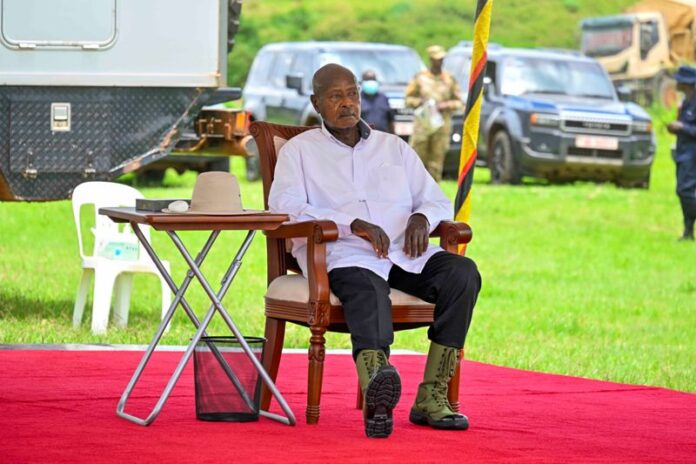By Oweyegha-Afunaduula
Uganda has been politically independent since 9th October 1962 but it’s people remain largely politically undeveloped and politically illiterate. Politics is largely focused on accessing political office or power, money, resources and consumable good and services at the expense of others.
Political leaders have taken advantage to consolidate and retain power at all costs by ensuring that those who would provide alternative leadership are as divided as possible.
More critically important, the alternative political associations or political parties, are conducting their political business by dancing to the political tune being played by the incumbent President, whom they have let to set his own political agenda unchallenged.
The Opposition leaders no longer concentrate on renewing political leadership in their own parties or the country. Or else they concentrate on fighting each other within their parties, and seem to hate the word “Compromise”.
When they agree to disagree they spend time and energy forming new political parties, most of which do not direct their political bullets at the incumbent President but at their colleagues in the other parties.
Some of them actually have ties with the top leaders in the ruling regime either politically or financially and see no reason why they should struggle to liberate the country.
I characterize what is going on in the political spectrum of Uganda and its Opposition as the Presidentialisation of the Opposition of Uganda”.
This might, therefore, mean that the politics of the Opposition begins and ends with President Tibuhaburwa Museveni. It could also mean the President has a lot of influence on the creation of new parties or the politics within existing parties.
The presidentialisation of the Opposition in Uganda could also mean that the opposition parties are increasingly focusing on the presidency as the primary target and symbol of their political power and influence. As a consequence, Opposition political leaders are:
1.Concentrating on winning the presidency. Efforts and resources are heavily invested in capturing the presidency, potentially overshadowing other important electoral contests or local governance issues.
2. Playing Leadership-Centric Politics whereby the opposition’s identity and messaging might become heavily reliant on the charisma, popularity, and leadership style of their presidential candidate, rather than on party ideology, policies, or grassroots organising.
3. Potentially neglecting other levels of governance. With a strong focus on the presidency, there is the danger that there will be less emphasis on building strong Opposition presence in parliament, local councils, or other governance structures, which are crucial for checks and balances, policy implementation, and representation at the grassroots level.
There is no doubt that this trend will have long-term implications for Uganda’s political landscape, including how political power is contested, how policies are developed and implemented, and how democratic institutions function.
Already, as the Opposition diverts its attention and focus from liberation and change, the ruling regime has succeeded in designing and enacting policies and laws respectively that are violent and disempowering. It will take a very long time to de-presidentialise the Uganda political landscape in general and the Opposition in particular.
In the meantime both the regime in power and the Opposition will be burdens to the people of Uganda, meaningless and ineffective in terms of development, transformation, change and progress in a century of new knowledge and new communication technologies. The country will continue on the path of de-democratisation, hereditary militarism and political militarism. The dream of independence and sovereignty will never be realized if the trend continues. The real beneficiaries will be foreigners. In one sentence, This is reversal of independence, a process that has been on for the last 40 or so years
For God and My Country.
Oweyegha-Afunaduula is a member of Center for Critical Thinking and Alternative Analysis



